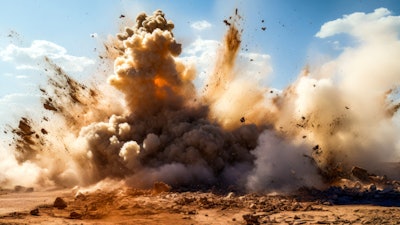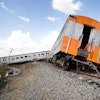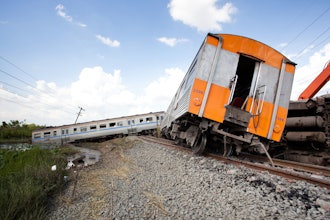
Worcester Polytechnic Institute (WPI) has launched a groundbreaking Master of Science in Explosion Protection Engineering, the first program of its kind in the United States. Designed amid growing concerns about fire and explosion risk posed by manufacturing facilities and advancing technologies like electric vehicles and hydrogen fuel cells, the new program builds on WPI’s legacy in Fire Protection Engineering, which has been at the forefront of fire safety education and research since its inception in 1978.
“The demand for leaders with advanced expertise in explosion protection engineering is more critical than ever,” said John McNeill, Bernard M. Gordon Dean of Engineering. “These leaders will be essential in driving systemic changes in infrastructure, process safety, regulations, and public awareness."
Explosions, whether related to battery and energy production and storage, accidental industrial incidents, unintended combustion of manufacturing materials, or intentional bombings, have led to catastrophic consequences. Notable examples include the BP Deepwater Horizon explosion (2010), the Merrimack Valley gas explosions in Massachusetts (2016), and the Surprise, Arizona energy storage system explosion (2019). These events have resulted in deaths, countless injuries, and billions of dollars in damages.
“Quantifying and mitigating explosion hazard is key to ensuring safety in today’s world where advanced manufacturing, lithium-ion batteries, and other high-energy density storage systems are being increasingly adopted,” said Ali Rangwala, fire protection engineering professor and director of the explosion protection engineering program. “Our program offers students and professionals the skills to manage these hazards and advance their careers.”
The Explosion Protection Engineering program addresses the fragmented nature of explosion safety education, offering a comprehensive curriculum that incorporates current standards, modern theories, and cutting-edge research to address risks that come with some types of batteries, chemicals, and even food dust. The program expects to attract high-caliber students with undergraduate degrees in chemical engineering, aerospace engineering, mechanical and materials engineering, civil, environmental, and architectural engineering, and fire protection engineering, among others.
Courses are fundamentally grounded in the core principles of engineering; the overarching goals of the program are ambitious: to integrate best practices and innovative research, facilitate technology transfer from multiple disciplines, and help define the emerging field of explosion protection engineering.
A key aspect of the program is its focus on bridging the gap between industry and academia. Burke Desautels, WPI Class of ’89 and IEP Technologies head of explosion protection, expressed his enthusiasm in partnering with WPI’s explosion protection engineering program.
“One of the biggest challenges in explosion protection is talent development. There simply aren’t programs to train the next generation of explosion protection engineers. IEP is very excited to contribute our decades of experience and application knowledge to this program.”
Courses will be led by WPI faculty who are renowned for their work in explosion research, covering topics such as dust explosions, mine explosions, marine fuel safety, battery energy storage, and hydrogen detonation. This expertise ensures that graduates are not only well-prepared for lucrative careers but also equipped to contribute to research and innovation in explosion protection, leading to safer technologies and improved industry practices. Students also will gain access to WPI’s state-of-the-art laboratories and longstanding industry ties.
“This program will be incredibly valuable in building working professionals who can help rationalize, solve, and justify solutions to complex industry problems,” said Hannah Murray, WPI PhD student. “There are problems that we don't have all the answers for. I am looking forward to taking courses with experienced professors and conducting research in the advanced facilities available at WPI.”





















